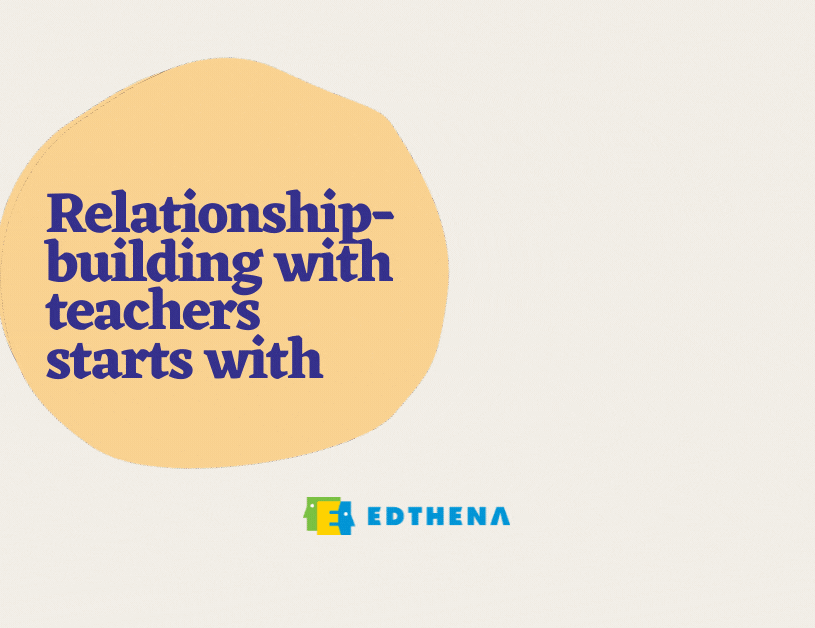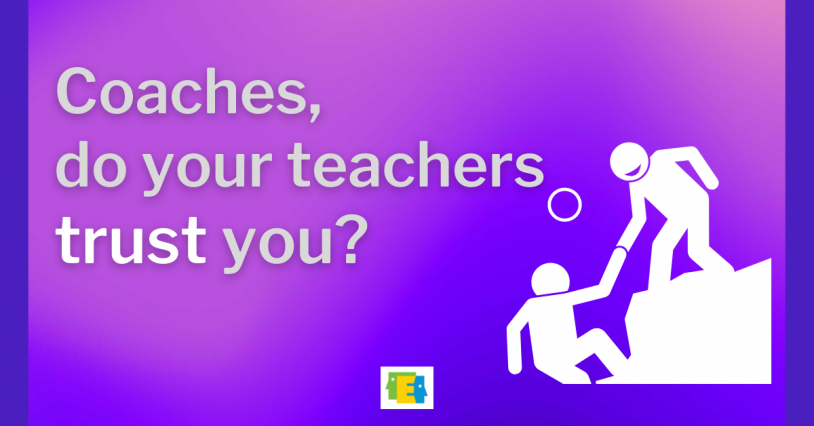Supporting Teachers This Year? 7 Questions to Help You Lead with Relationship-Building
It’s the start of a new school year and will, hopefully, be the start of fruitful relationship-building.
Educators know the value of connection between teachers and students, and teachers and students’ families. But what about between teachers and their coaches?
For coaches and school leaders working with teachers, a strong relationship must be at the core of the partnership.
If you’re an instructional coach or school leader supporting teachers this year, here’s what you need to know about effective relationship-building, including 7 questions every coach should ask.
Relationship-building starts with thoughtful questions
The most important way to begin is with a true beginning-of-coaching conversation that takes place even before your first check-in about work or a classroom observation. 
Don’t skip the getting-to-know-you stage. This is an opportunity for you and your coachee to foster a connection.
Some important questions to ask in an initial conversation include:
- Tell me about yourself.
- What are your top 3 values that drive you as a person?
- What brings you to this work?
- What are your personal strengths?
- What is your vision for yourself and for your work?
- How do you best receive and process feedback?
- What should you and I commit to for our relationship?
These don’t need to be asked in a particular order; this is a conversation, not an interview. Use these prompts to facilitate a genuine conversation.
Coaching is a two-way street
Your smallest actions and words make a big impact on the relationship you are cultivating. Follow through on even the most minute promises and commitments.
Check in on how your teachers are doing and feeling, and just as importantly, share about yourself, too!
Teachers should know your support doesn’t just go one-way. You want their feedback as well, to continue to grow yourself and ensure you’re providing coaching in the best way possible for each unique teacher.
Virtual coaching doesn’t mean forgetting about relationships
When you are coaching with video in virtual spaces like Edthena, relationship-building might seem more difficult. But it doesn’t need to be.
The first step is putting teachers at ease about how virtual coaching will work.
Set ground rules and norms for how their teaching videos will be used and who will see them, and then make sure you stick to that.
Let teachers know their videos won’t be used to evaluate them, but to support their growth with feedback. Also consider how you’ll balance the role of video with other professional learning strategies and check-ins.
A strong coaching relationship is absolutely possible even across computers.
Why bother with relationship-building? Trust is a must
Getting down to instructional feedback may seem urgent, but it won’t mean much without relationship-building. 
The most impactful, and equitable, work is done when colleagues lead with emotional intelligence, creating positive and productive relationships.
Coaching and leading are all about fostering and accelerating growth and supporting teachers to get better at their practice. An integral part of that is giving teachers feedback, and if a teacher doesn’t trust you, they won’t trust what you’re telling them.
Imagine navigating the following situations without the trust of the teachers you’re coaching:
- giving hard-to-receive feedback,
- managing conflict,
- mediating a classroom situation, and
- even celebrating victories.
Simply put, you won’t be as effective if you don’t have a strong core relationship with the people involved.
In addition to garnering trust, you can encourage more growth when you deeply know about the person you’re coaching. A house can only be built on the foundation already there.
This includes a teacher’s skills, strengths, and weaknesses. It also includes their values and motivations. Understanding someone’s mindset and barriers to success is what will help you to help them propel forward.
So, get to know the person underneath the teacher.
Put teachers first
As another school season gets underway, teachers need support more than ever. Ensure they know you have their best interests in mind by putting their humanness first.
Relationship-building will be key to a productive school year.
Interested in more for teachers and coaches? Check out our collection of Focus on Teaching & Coaching posts.

